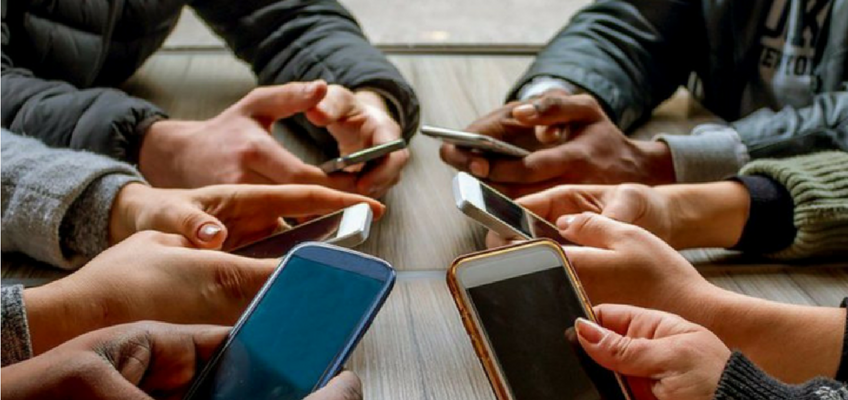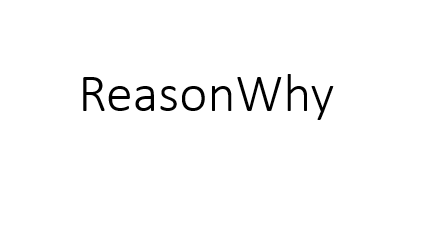Smartphones are a big part of our daily lives. A small mini-computer that we can carry around in our trouser pockets and do just about anything with it – at anytime and anywhere. Texting, browsing the web, online shopping or checking our bank account. Most of the people say that this is the pure freedom of the 21st century. But in my opinion, this freedom has a relatively high price, about which many people are not really aware of. I am talking about the aspect of addiction. Addiction is something that we generally only know from other aspects such as drug abuse, alcohol or nicotine. When you talk about an addiction related to the smartphone, most people will probably be confused or think that this is just ridiculous. But it is not. It is a phenomenon that can be observed more often than you think.
The Daily Usage of Smartphones
Let’s be honest for a second. What is the last thing you look at before going to bed? What is the first thing you look at after waking up? How do you feel when the battery level of your smartphones only has 1 % left and you’re nowhere nearby a power socket? There is no doubt that the smartphone takes up a lot of our everyday life and even affects our emotions. Some people say that this is just our daily life in a modern civilization. I claim that using a smartphone is becoming more and more an addiction problem. If you feel slightly attacked or taken by surprise by the term addiction, here are a few crisp numbers from the Communications Market Report 2018 (UK), which will hopefully broaden your horizon.
- 95 % of 16 to 24 year olds own a smartphone.
- The smartphone is checked every 12 minutes on average.
- 34% of smartphone users feel cut off from the outside world without a smartphone.
- The smartphone is used an average of 2 hours and 28 minutes a day.
And that’s just the tip of the iceberg. The following video of the Communication Market Report 2018 clearly shows the advantages of having a smartphone, but also our dependence on it and its effects on our social environment and our health. From my point of view, the smartphone phenomenon is therefore both a blessing and a curse. But feel free to watch the following video in order to come up with your own opinion about it.
https://www.youtube.com/watch?v=SaKCEb8qgNI
When Smartphones become Cigarettes
If you reflect on what was stated in the video above, isn’t it logical to say that smartphones are on a par with nicotine, alcohol or sex? These little devices, which have no age restrictions by the way, have an enormously high addictive potential and have the same effects on our own well-being and social environment as any other addictive substance, long or short. It is distracting, time-consuming and we might even destroy personal relationships due to the lack of actual face-to-face interaction.
In my own environment, I keep hearing that people prefer to write themselves rather than go out for a coffee and talk to each other face-to-face. They almost feel offended when their own Insta post gets fewer likes than the previous one. In a meeting it is unfortunately already common that the smartphone is ready to hand on the table and meetings are even interrupted because of incoming messages or calls. Is this really a social environment we want to live in and let future generations forget what real social interactions feel like?
Simon Sinek, from my point of view one of the best visionary thinkers and keynote speakers, makes a bold statement on why smartphone addiction is so problematic for today’s generation and its personal and professional environment. Although, I can mostly relate to his argumentation in the video below, I want to make the following two remarks in advance.
- Just because his statement directly addresses the millennial generation, it does not necessarily mean that all millennials are having theses issues as described by him.
- From my point of view, the effects of smartphone addiction may be simply most obvious at the millennials. But as the first video has shown, addiction is a common phenomenon in all generations in different degrees – from the baby boomer to the generation Z.
https://www.youtube.com/watch?v=sL8AsaEJDdo
Conclusion about Smartphone Addiction
Firstly, I have no right to claim that I am completely exempt from the above mentioned points. Moreover, I openly admit that we have much more possibilities with the smartphone than previous generations and that I am really grateful for that. However, I am convinced that the phenomenon of smartphone addiction also demonstrates a very big downside of the coin, which may have a huge negative impact on our lives and, above all, our social environment.
To sum it up, it is important to keep in mind that potential addictive substances such as alcohol, nicotine and a smartphone as well do not immediately negatively influence or even destroy a person’s social environment. As Simon Sinek says, it is important to keep the balance and control the use of a smartphone in such a way that one’s own well-being and the direct social environment do not suffer.
Sources
- Header image: https://bit.ly/2S8OXni
- Video 1: www.ofcom.org.uk (Communications Market Report 2018)
- Video 2: www.youtube.com (Addiction to Technology is Ruining Lives – Simon Sinek on Inside Quest)



Hey Diego, thank you for this article. Three or so years later you should feel vindicated. It’s so evident that smartphones are addictive. I’m a singer/songwriter who releases music under the name Marc Maynon and in January of 2020 I hit a real crossroads with my smartphone and I actually threw it into the pavement (á la Andy Samberg) destroying it. I’ve used a flip phone ever since. It has been a very good change for me. I just released this new music video https://youtu.be/muHOhIrHO98 and in it I depict how my smartphone made me feel (i.e. crazy) and also how important it was to get rid of it as far as ‘creative time’ goes. This is all through the perspective of a creator I should say. Please give my music video a watch when you get a chance and thanks so much for your article.